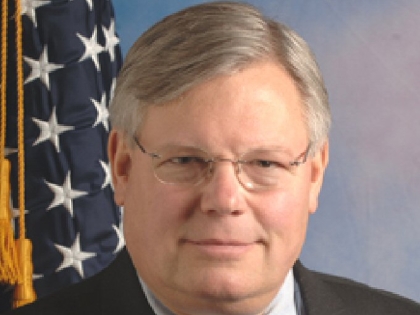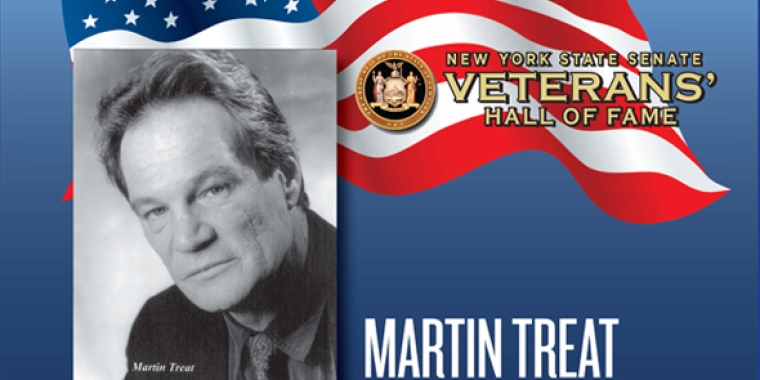
Expressing Concerns About Nyc Department For The Aging "modernization"
Mr. Edwin Mendez-Santiago
Commissioner
New York City Department for the Aging
2 Lafayette Street
New York, NY 10007
Dear Mr. Mendez-Santiago:
I am writing about the New York City Department for the Aging's (DFTA) proposed "modernization." This rapid and comprehensive restructuring of DFTA's services for older New Yorkers will have a significant impact on many of my constituents.
I understand that the proposal focuses on case management, home-delivered meals and senior congregate activities. While I support efforts to improve the efficiency and the effectiveness of these services, I share the concern of many of my colleagues and advocates for the elderly that the restructuring is happening too quickly. As DFTA is overhauling services for older New Yorkers throughout the entire City, a period of at least six months should be given between requests for proposals and transitions. This longer time-frame will enable agencies with old and new contracts to adjust to the changes and ensure the uninterrupted provision of essential services so that senior citizens do not fall through the cracks. I would also ask that DFTA be exempted from the City's across the board budget cuts during this period of major restructuring, as such cuts will inevitably hinder the effective implementation of these plans.
I also wish to enumerate several of my specific concerns regarding the proposed changes.
- DFTA's Concept Paper for the Home-Delivered Meals RFP seeks to vastly reduce the total number of meal provider contracts from the current 97, most of which are with local senior centers, to an anticipated 10-20 contracts, which by their nature must be with larger, centralized organizations. I am concerned that such a dramatic consolidation of this service will hinder the ability of providers to devote sufficient time and attention to all of the recipients. Furthermore, ending the senior centers' role in delivering these meals will disrupt the trusting relationships many food recipients have developed with their longtime delivery workers, who are, in some cases, their only connection to the world outside their homes. I fear that the loss of these relationships could have unanticipated consequences if seniors do not feel comfortable asking their new delivery workers for help in emergencies or when they have special needs.
- The Concept Paper for the Home-Delivered Meals RFP also seeks to roll-out citywide the "Senior Options" plan, piloted in the Bronx, which allows eligible seniors to choose daily hot or twice-weekly frozen meal delivery. I am concerned that those seniors who choose twice-weekly frozen meal deliveries will not only miss out on the daily social contact their delivery people provide, but also will lose a critical daily check on their health and safety.
- I question the move away from local, home-delivered meals providers that know the tastes and dietary needs of their communities and can tailor their cooking to accommodate them. The various immigrant and otherwise affiliated communities that call New York home have been well-served by having their meals prepared by their neighborhood senior centers. I am concerned that a more centralized system might homogenize the menu options. Regardless of what entities hold the home-delivered meals contracts, I want to emphasize the importance of maintaining the diverse cuisines and sensitivity to dietary needs currently provided.
- The Concept Paper for the Senior Congregate Activities RFP says DFTA is "considering setting up regions to ensure that the greatest number of older, low income New Yorkers are reached in the fairest possible manner." While it doesn't detail what that "regionalization" would look like, it certainly suggests a consolidation is planned, with the goal of bringing about economies of scale by shifting from local centers to larger agencies. I urge DFTA to take the Council of Senior Centers and Services of New York City's (CSCS) suggestion and do a cost benefit analysis of current efficiencies already built into the senior center system before pursuing such a consolidation. This analysis should be used to weigh how much efficiency can realistically be added without sacrificing quality of services provided or ease of access. CSCS notes that seniors tend to visit centers that are within a ten block radius of their homes, especially as they get older. If senior congregate activities are consolidated into hubs serving larger areas, overall attendance will likely drop significantly.
- In the Concept Paper for the Senior Congregate Activities RFP, DFTA explains that one of its objectives in restructuring its services is to "keep apace" with the changing senior demographic, noting that "activities now considered core services...will appear in different permutations." I understand that DFTA seeks to establish senior centers as springboards for health and wellness pursuits, but I fear that these changes will come at the expense of essential services such as congregate meals. Hot meals at senior centers should continue to be funded, as they offer the invaluable opportunity for seniors to converse and socialize while eating, which is both nutritionally and psychologically beneficial.
- While I appreciate the virtues of providing health and wellness programming in our City's senior centers, the majority of the calls my office receives from seniors concern eviction and health care. Certainly, many seniors will -- and often already do -- benefit from wellness classes, vocational training and career resources, but I would add that lessons in tenant rights and accessing public benefits are increasingly relevant for those who wish to remain in the City.
- The Concept Paper for the Senior Congregate Activities RFP asserts that nearly half of all senior centers are underutilized, which is defined as operating at less than 90% of meal capacity. The issue of one million unserved meals needs to be addressed, but DFTA is being unfair in classifying senior centers operating at 89% of meal capacity as underutilized. I would ask that a more nuanced measure of usage be developed before DFTA uses it as the basis for decisions.
- I am concerned that the Senior Congregate Activities RFP concept paper does not outline plans to provide transportation to the senior centers. Senior center-operated van service currently enables many otherwise homebound seniors to visit their senior centers, and should continue to be considered a core service, adequately funded as such. This is particularly important given the continuing difficulty MTA New York City Transit has had in providing accessible and/or reliable transportation to people who are infirm and/or have limited mobility.
- I am also concerned that the overall theme of these proposals is modernization, when what many senior centers most urgently need is structural renovations. The current proposals place the burden on senior centers to implement evidence-based programs and to collect and analyze data without adequate time or additional funding. Most local senior centers would be unable to comply with this mandate without an infusion of public funds. Such funds are not forthcoming in the context of proposed budget cuts. And, in any case, the renovation needs of current senior centers, even if part of a capital expenditure, should be a higher funding priority.
- Finally, DFTA has indicated that some senior centers will close as a result of this modernization, but it has not specified which ones or how many. If, indeed, DFTA plans to close any of the existing senior centers, I would urge the department to consider the essential role of smaller centers in serving individual communities. Again, I want to emphasize the importance of preventing a homogenization of services as a consequence of streamlining them. The diversity of our population in this great City is both its essence and its most unique asset, and must be reflected in the services that we, as elected representatives and their appointees, provide.
Thank you for considering my input on DFTA's proposed modernization effort. I look forward to continuing to work with DFTA to promote the empowerment, independence, dignity and quality of life of our City's growing population of older adults.
Sincerely,
Thomas K. Duane
New York State Senate
29th District
